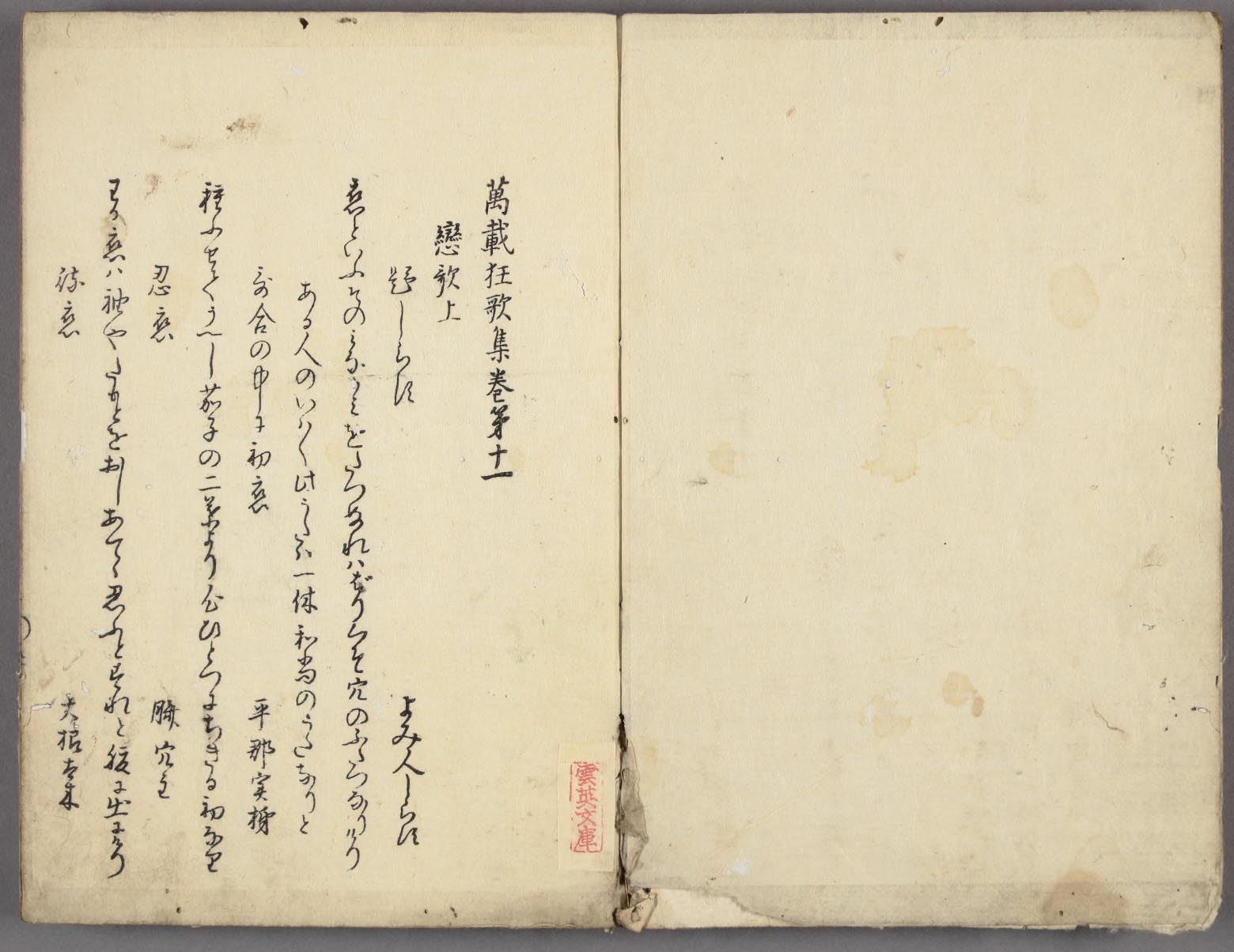[Taiga Drama ~Berabou] Episode 27
With the price of rice continuing to rise, the Tanuma administration finds itself in an increasingly difficult position!
And then, a blade is turned against Tanuma Ochi, while the courtesans Daresode and Tsutaju…

Image
Banzai Kyoka Collection (Source: Ukiyo-e Cafe Collection)
The price of rice continues to soar. This is the story from episode 27 of the historical drama “Berabou.” In the previous episode, Tanuma Ochitomo proposed a revision of the stock association system to allow the free import and sale of rice into Edo. He promulgated the Order for Free Rice Trading, believing that the influx of rice at fair prices would force merchants who had been buying up rice for speculative purposes to sell it.
However, this resulted in many non-rice merchants buying up rice, further exacerbating the situation. The Tanuma administration was held responsible. While the Reiwa rice riots appear to be calming down with the release of stockpiled rice, concerns about the future remain. The drama’s depiction may provide valuable insight into Japan’s future rice policy. Meanwhile, the daresode (who had been hoping for Tanuma Ochitomo’s redemption) was spending their days in distress as the rice riots slowed progress in their redemption plans.
Ichi was told to refrain from visiting Yoshiwara for a while, saying, “I must refrain from entertainment until the price of rice drops.”
Tagasode’s poem, “The paper case I prayed for, thinking I would never forget it, makes me yearn for you all the more,” is a famous line that was even included in the Banzai Kyoka collection. Moved by this line, Ichi decided to buy Tagasode’s freedom under the name of the treasurer, Tsuchiyama Sojiro. (In actual history, Tsuchiyama Sojiro actually bought Tagasode with the proceeds of illegal activity.)
In the drama, Taresode was portrayed as happy, dressed in the attire of a samurai woman, but a tragedy was looming that would put an end to her happiness.
[Sano Masayoshi’s Sword Wound Incident]
Tanuma Okitsugu enjoyed absolute power at the time, backed by the trust of the 10th shogun, Ieharu, but at the same time, many held grudges against the Tanuma family. As a result, the sword incident between Sano Masayoshi and Tanuma Okitsugu occurred, and with the loss of his heir, Okitsugu’s power also began to decline. The Sano family was a Tokugawa vassal family, a hatamoto vassal that had guarded Edo Castle for generations. Despite their prestigious lineage, they had a low stipend and faced difficult economic circumstances. Therefore, in episode 6 of Berabou, Sano Masayoshi’s father, Masatoyo, presented a family tree showing that the Tanuma family had once been Sano’s vassal, and asked Okitsugu for help in his career. However, his wishes were repeatedly rejected, and in episode 27, after various incidents that led Masayoshi to distrust the Tanuma family, we see him draw his sword at Okitsugu. This eventually led to the Tanuma family’s downfall, but it also brought great misfortune to Daresode and, historically, Tsutae, so it’s important to watch what happens next. Tsutaju also gets a little more active in episode 27 regarding rice policy. He visits the Tanuma household and proposes that the shogunate purchase rice and sell it to the people at the same price. However, Ichi demurs, saying, “What a samurai doing, quasi-business…” In response, Tsutaju persuades, “When you’re struggling to make ends meet, you have to forgo books, give up on construction, take a bath once every 10 days, and go to the barber. This leads to increasingly poor circulation of money. We must stop this flow. This is not business, it’s politics.” I personally believe this idea is connected to the current consumption tax reduction policy. The consumption tax dampens consumer sentiment, slowing down the flow of money. Therefore, the consumption tax should be reduced to stop this flow. Currently, one political party is arguing this, and it is one of the issues in the House of Councillors election. Will revitalizing consumer sentiment lead to a booming economy, which in turn leads to increased tax revenue? Perhaps a look back at history through historical dramas and other sources might provide some clues.
